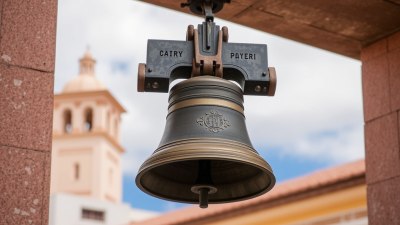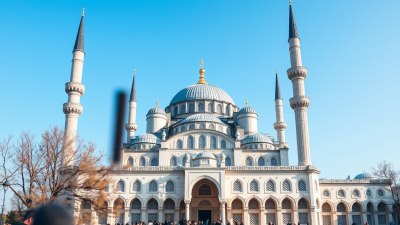The Best Places to Witness Traditional Tribal Festivals
Explore the top destinations to experience traditional tribal festivals worldwide.

This image was created with the assistance of Freepik
Tribal festivals are vibrant celebrations showcasing the rich cultural heritage of indigenous communities around the world. These events serve not merely as entertainment, but as a means to preserve traditions, bring together communities, and pass down practices through generations. Below are some of the best places to witness these remarkable traditional tribal festivals.
1. Huli Wigmen Festival, Papua New Guinea
The Huli Wigmen Festival, held annually in the highlands of Papua New Guinea, is a spectacular display of cultural heritage that attracts both locals and global visitors. The festival includes colorful body paint, elaborate headdresses made of feathers and leaves, and traditional songs and dances performed by the Huli tribe. It's an immersive experience that celebrates their deep connection to nature and spirituality.
2. Kumbh Mela, India
The Kumbh Mela is one of the largest religious gatherings in the world, held every twelve years at four sacred rivers in India. While it is primarily a Hindu pilgrimage, it also showcases a rich tapestry of tribal cultures across the nation. Various tribal groups participate, showcasing their unique customs, rituals, attire, and spiritual practices. This festival is a colorful amalgamation of spirituality, tradition, and cultural diversity.
3. Festival of the Sun, Peru
Inti Raymi, or the Festival of the Sun, is held in Cusco, Peru, every year on June 24. This ancient Incan festival honors the Sun God, Inti, and celebrates the winter solstice. While predominantly an Incan tradition, various Andean tribes participate in this festival, reenacting ancient rituals, offering sacrifices, and performing traditional dances in colorful costumes, providing a vivid insight into their ancestral cultural practices.
4. Gudi Padwa, India
Primarily celebrated in the western states of Maharashtra and Goa, Gudi Padwa marks the beginning of the New Year for many Maharashtrians. While it has deep-rooted Hindu significance, indigenous tribal communities also celebrate this vibrant festival by showcasing their unique traditional attire, crafts, and regional cuisines. The festive atmosphere is filled with joy and colorful public displays that make it a unique celebration.
5. Nguni Cultural Festival, South Africa
Hosted annually in South Africa, the Nguni Cultural Festival is a diverse gathering of the Nguni ethnic groups including the Zulu, Xhosa, and Swazi tribes. This festival highlights the traditional dress, dance, music, and culinary arts of these tribes. It features traditional games, storytelling, and displays of tribal crafts, promoting understanding and appreciation of their cultural heritage.
6. Maasaï Mara Cultural Festival, Kenya
Every year, the Maasaï people gather to celebrate their rich heritage through a cultural festival that showcases their music, dance, and age-old traditions. Set in the picturesque surroundings of the Maasaï Mara, the festival features traditional dances, vibrant attire, and demonstrates their way of life, including crafts, food, and customs. It is a celebration of their profound relationship with the land and wildlife they coexist with.
7. Obon Festival, Japan
The Obon Festival, while more rooted in Buddhist tradition, heavily includes the celebration of local Japanese tribal customs. Celebrated annually during the summer months, it honors the spirits of ancestors with lantern floating ceremonies, folk dances, and regional performances that reflect Japan's unique blend of modernity and tradition. It's a time when families come together to celebrate their heritage.
8. Tana Toraja Festival, Indonesia
The Tana Toraja community in Indonesia is known for its elaborate death rituals, which culminate in the Rambu Solo festival. Here, attendees experience a deeply traditional celebration that honors ancestors with livestock sacrifices, music, and dance. This festival beautifully encapsulates the culturally rich customs of the Toraja people and their reverence for life and death.
9. Troupe de Gnaoua, Morocco
The Gnaoua Festival in Essaouira, Morocco, celebrates the unique blend of African, Berber, and Arab influences in Moroccan culture. The festival showcases traditional Gnaoua music, a captivating form rooted in sub-Saharan African spiritual traditions. It includes vibrant performances from various tribal groups, providing a deep dive into the diverse cultural tapestry of Morocco.
10. The Turtles of the insular Pacific, Fiji
The Fijian Festival of the Sea, celebrated annually, combines respect for the ocean and its creatures with cultural expression. The local tribes participate in traditional dances, music, and storytelling, reflecting their ancestral connection to the sea. This is an event that emphasizes sustainability and raises awareness about marine conservation, showing how tribal culture and environmental stewardship go hand in hand.
11. Seattle’s Tribal Canoe Journey, USA
Every summer, Native American tribes from the Pacific Northwest gather to celebrate the Tribal Canoe Journey, an event that not only showcases traditional canoeing skills but also emphasizes the importance of cultural exchange among different tribes. Participants engage in song, dance, and storytelling, all while paddling together, highlighting the significance of the canoes in their culture.
12. Niu Valley Cultural Festival, Hawaii
The Niu Valley Cultural Festival in Hawaii offers a glimpse into the rich traditions of Native Hawaiian culture. This festival features traditional hula performances, local crafts, and food that reflect the island’s heritage. Visitors will appreciate the significance of community and family within tribal traditions, making it a warm and embracing experience.
Traditional tribal festivals are not merely events; they are a tapestry woven with the threads of history, culture, and community spirit. Each festival offers a unique perspective into the lives of tribal peoples, allowing us to appreciate the importance of cultural preservation and celebration. As you explore these festivals, you engage in a broader dialogue about cultural identities and the need to cherish and respect them in our increasingly globalized world.











